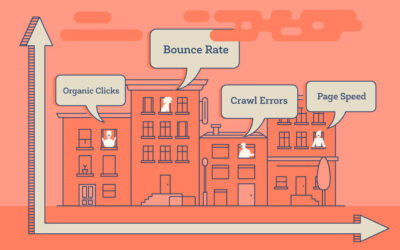Performance Marketing: Results Come First
Large and small companies utilize paid search, search engine marketing, social media marketing, and other digital marketing channels to get their message out and generate revenue. These strategies require upfront investments, ad spend allocation, and someone to spend time on the campaigns daily. If that amount of effort seems overwhelming or unappealing, businesses can move toward another digital marketing method: performance marketing.
With performance marketing, companies only pay after getting results instead of vice versa. Does this sound like a good arrangement? If so, read on to find the details about this marvelous marketing approach.
What Is Performance Marketing?
Performance marketing is a form of digital marketing where campaigns are entirely results-driven. As such, companies only pay after getting the desired actions rather than paying at the start of the campaign. In this method, businesses depend on a marketing agency to advertise on their behalf and then proceed to pay them accordingly. In other words, the brand doesn’t have to lift a finger.
Common actions that brands desire are clicks, email sign-ups, sales, and phone calls.
How Does It Work?
The premise is simple: a company permits an agency to advertise on its behalf. When the agency gets customers to complete the desired action, the company pays a small fee. The business does not need to do any work themselves. The marketing agency will keep track of all clicks, conversions, and other relevant metrics.
Example: A company wants to pay $3 per phone call that lasts at least three minutes. The company sells car insurance policies that may cost several hundreds of dollars. The company generates a phone number that is explicitly linked to the agency. Each time a customer calls that specific phone number and speaks with the representative for three minutes, the company will receive an invoice for that action.
What Are KPIs?
As stated earlier, companies can ask their performance marketing agency to focus on having prospective customers complete specific actions. Let’s now take a look at the various KPIs that they can use to measure results:
- Cost per Sale (CPS): payments are based on hitting certain sales numbers
- Cost per Acquisition (CPA): pay is based on lead or new customer acquisitions
- Cost per Click (CPC): the company pays the agency based on the number of clicks generated
- Cost per Lead (CPL): payments are based on the number of leads generated over a set period
- Cost per Impression (CPM): pay is based on pre-established targets for impressions
Once you choose a specific KPI, the agency can start its advertising campaign.
What Are the Channels That Performance Marketing Can Use?
The performance marketing agency will choose the appropriate channel depending on the campaign’s goals. Here is a list of potential channels:
- Search Engine Marketing (SEM): advertise on search engines
- Social Media Marketing: advertise on social media platforms
- Influencer Marketing: partner with people who have an online following to promote your brand
- Display Advertising: advertise on third-party websites
- Native Advertising: advertise with sponsored content
- Affiliate Marketing: partner with affiliates who will link back to your site
- Email Marketing: market through email lists
- Content Marketing: market by providing helpful content
It is rare for a company to use only one advertising channel. Since customers can be anywhere at any moment, performance marketing agencies will put together a custom package that will work best for your goals and budget. This could include two or more of the above channels.
What Are the Benefits of Performance Marketing for Companies?
The big winner in this type of digital marketing is the brand. In traditional marketing, companies must pay first and then hope for results. Not so here — in the performance marketing model, businesses get results first and then pay after. This means that the company takes on zero risk; instead, the marketing agency bears the burden of risk from the very start.
Performance marketing campaigns are also fully “hands-free,” meaning the agency handles them fully. This frees up time for the business’s staff to work in other areas. The company does not need to spend the resources to hire, train, and maintain an internal marketing department.
Lastly, clients can set a budget for the campaigns, which allows them to limit their costs. They can shut off the advertising anytime and resume when needed. The client is in complete control at all times.
Who Should Use Performance Marketing?
It is perfect for clients wishing to engage in results-driven marketing campaigns and clearly understand what they are trying to achieve with their marketing efforts. Businesses that depend on leads will significantly appreciate the potential for unlimited leads. It is also great for those who want a professional marketing agency to do the legwork for them so that they have time to do other things.
Who Should Not Use Performance Marketing?
Is not for the following situations:
- Those who want complete control over campaigns.
- Those who want to create their own creatives and ad copy.
- Those with in-house digital marketing teams.
- Those not concerned with specific results.
- Those who only want brand awareness.
Although performance marketing is a powerful tool, it is not for everyone. It is up to you to decide whether or not to use it.
Let TenStrat Take Care of Your Performance Marketing
If you’re interested in incorporating performance marketing into your advertising efforts, you’re in the right place. TenStrat is a performance marketing agency with over 25 years of experience. We are excited to help you get the desired results. From CPL to CPS, our expert marketers can whip up a package specifically tailored to your needs. Contact us for a free consultation and start your performance marketing campaign today.


